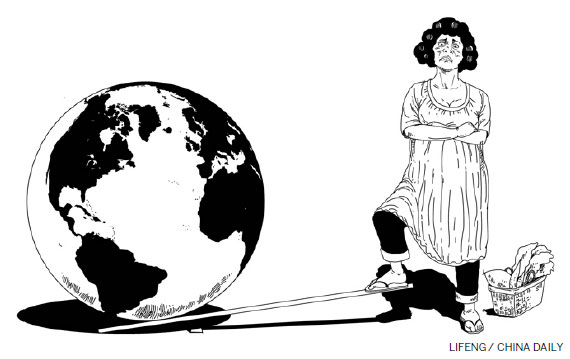A chip of the old block in the new age
By Yang Ziman (China Daily) Updated: 2014-09-01 08:05Chinese Damas are often mocked for their investment naivety, poor fashion taste and disregard for public etiquette. But do they deserve such treatment when social values, moral codes and other aspects of life have been compromised in the pursuit of economic growth?

Dama, meaning "big mama" in Chinese, is a slightly mocking reference to middle-aged women. The term first appeared in the Western media when middle-aged Chinese women rushed to buy gold as an investment amid falling gold prices last year. The Wall Street Journal quoted "Dama" directly while reporting on the Chinese "gold rush". But instead of ridiculing Damas for being naive investors, we need to look at China's economic and social development to find the reasons behind their behavior.
Damas grew up in an age of shortage. Most of them devoted themselves to their families, saved for their children's future and set aside enough money for their old age. So in more ways than one, they reflect the changing fortunes of the country: emerging from poverty to quickly become prosperous. Now that Damas find themselves among relative abundance, it is natural for them to go for things they couldn't afford in their youth. Perhaps this is the reason why they display a strong herd mentality.
Damas made a foray into overseas investment in the first half of 2013 by buying large quantities of gold. As their buying spree ended, gold prices took a dive and they became a short-lived sensation in Wall Street and a laughing stock of the Western media. But how can the media, or for that matter anyone, expect women who've spent most their lives taking care of and saving for their families to be smart investors?
Damas tend to make irrational investment decisions based on hearsay, says Zhu Ning, deputy dean of Shanghai Advanced Institute of Finance. They are easily influenced by short-term price fluctuations and don't look at the bigger picture. Like many other ordinary investors, they don't gather full information on financial products before dealing in them.











